-
Issues That Can Cause Tooth Pain
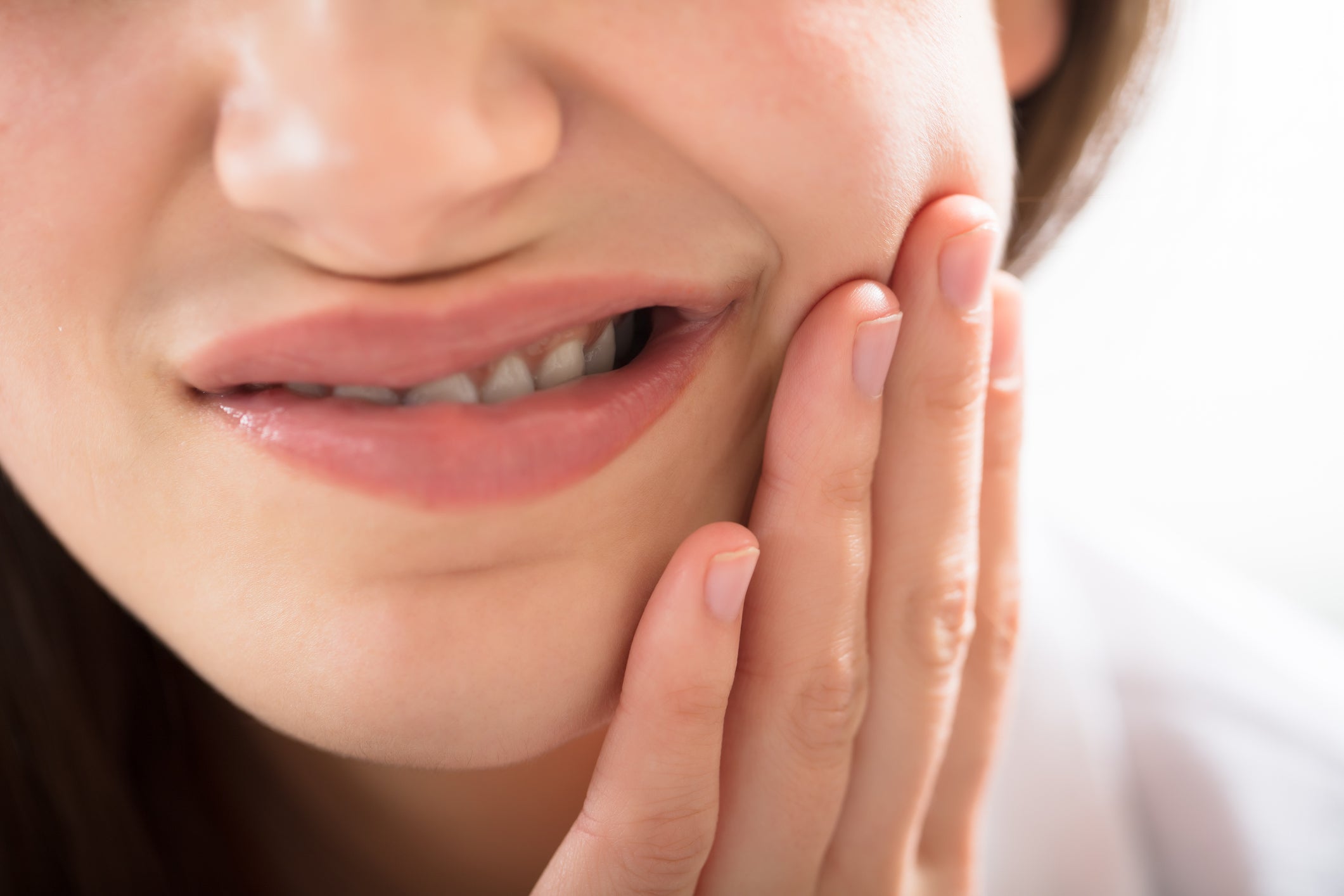
Does your tooth hurt? You’re not alone. Millions of people suffer from tooth pain every year, and it can be a challenge to figure out the cause. Park 56 Dental in New York is here to help you sort through the possibilities. Let’s examine some of the common issues that can cause tooth pain.
Tooth Decay
One of the most common causes of toothache is decay or cavities in the teeth. When food particles remain on the teeth, they are broken down by bacteria which produce acids that erode away at tooth enamel. This eroding action causes holes in the teeth (cavities) which can be quite painful when exposed to hot or cold temperatures or when pressure is applied to them. Visiting your dentist regularly for checkups and cleanings can help prevent this type of pain by catching any cavities early and treating them before they become too severe.
Gum Disease
Gum disease occurs when poor oral hygiene allows bacteria to build up on your teeth and gums, leading to inflammation and infection in the area around your teeth. Gum disease can lead to receding gums, loose teeth, bad breath, and even tooth loss if left untreated — not to mention plenty of painful symptoms! A good preventive measure for avoiding gum disease is to brush two times a day for two minutes each time, flossing once per day as well as seeing your dentist regularly for checkups and cleanings.
Infection
A dental infection occurs when bacteria enter an area inside or around a tooth where it doesn’t belong – such as an abscessed tooth/root canal or wisdom teeth coming through improperly – leading to swelling and pain. If an infection has reached this point, it will likely require professional treatment by a dentist such as antibiotics or even extraction in some cases. Regular visits with your dentist will help keep infections at bay by identifying any potential issues early on before they have a chance to escalate into something more serious requiring more intervention from your dental team.
How to Avoid Tooth Pain
One of the worst sensations is tooth pain; it’s sharp, agonizing, and often comes out of nowhere. Most tooth pain is caused by tooth decay or an abscessed tooth, but there are several steps people can take to help avoid toothaches. Brushing twice daily for two minutes, as well as flossing every day can help ensure that food does not get stuck in between teeth and cause issues. Additionally, remember to use toothpaste with fluoride; this helps protect the enamel on our teeth, which is the protective outer coating to the tooth. Also, be sure to rinse the mouth after meals, and stay away from sugary drinks and snacks. Too much sugar can erode tooth enamel over time. Taking these simple steps can help you prevent tooth pain in the long run.
Visit Park 56 Dental Today!
No one likes dealing with tooth pain, but unfortunately, it’s something that many people experience at some point in their lives. At Park 56 Dental in New York, we understand how difficult it can be when trying to identify what might be causing the discomfort. Contact us today to schedule an appointment or book online!
-
How Your Teeth Can Affect Your Breathing

Do you ever feel like you can’t catch your breath? Or that your mouth is always dry? These could be signs that your teeth are affecting your breathing.
When you breathe through your nose, the air goes down your throat and into your lungs. But if you have a blockage in your nose, such as from a cold or allergies, it can make it hard to breathe. This can also happen if your teeth are crowding your mouth and blocking your nasal passages.
Your teeth can also affect how well you can take deep breaths. If they’re misaligned, it can make it harder for your lungs to expand fully. And if you have an overbite or underbite, it can restrict airflow and make it difficult to get enough oxygen.
If you’re experiencing teeth-related breathing issues, read on for more information and tips for treatment.
Misaligned Teeth and Your Airway
If you have misaligned teeth, it can affect your airway. This is because your tongue may not be able to rest properly in your mouth, which can cause obstruction of your airway. In some cases, this can lead to sleep apnea.
What Is Sleep Apnea?
Sleep apnea is a serious sleep disorder that occurs when a person’s breathing is interrupted during sleep. People with sleep apnea often snore loudly and stop breathing for short periods of time. This can cause irregular heartbeats, low blood oxygen levels, and other health problems.
There are several treatments available for obstructive sleep apnea, including lifestyle changes, mouthpieces, and surgery. If you think that your misaligned teeth may be affecting your airway, you should talk to your dentist about getting braces or other corrective treatment.
Gaps in Your Teeth
If you have gaps in your teeth, it can also make it difficult to close your lips, which can also cause snoring. Gaps in your teeth can also affect the shape of your airway. This can also lead to sleep apnea. If you have gaps in your teeth and think you might have sleep apnea, it’s important to see a doctor so you can get treated.
Missing Teeth
When you lose teeth, it can influence how you breathe. This is because your teeth help to support the structure of your mouth and jaw. Without them, your mouth may collapse inward, which can cause problems with breathing. Additionally, missing teeth can make it difficult to correctly close your lips, which can also lead to breathing difficulties. If you are missing teeth and are having trouble breathing, be sure to talk to your dentist so he can help you find a solution.
The Consequences of Mouth Breathing
In some cases, teeth may also affect how you breathe by causing mouth breathing. Mouth breathing can be caused by several different factors, including teeth that are too far forward in the mouth (known as an overbite), or by a blockage in the nasal passages.
Mouth breathing can lead to several different problems, including dry mouth, bad breath, and even difficulty swallowing. If you think you may be mouth breathing, it is important to see a dentist or doctor so that they can determine the cause and help you find a solution.
What to Do
If you are experiencing any of these problems, it’s important to see your dentist at Park 56 Dental to find out if there is anything that can be done to improve the way you breathe. In some cases, simple dental treatments can make a big difference.
In other cases, more extensive dental work may be necessary. But in all cases, it’s important to talk to your dentist about your breathing problems so that you can get the treatment you need to improve your overall health. Contact us today to schedule an appointment and start getting your z’s!
-
Debunking Dental Myths
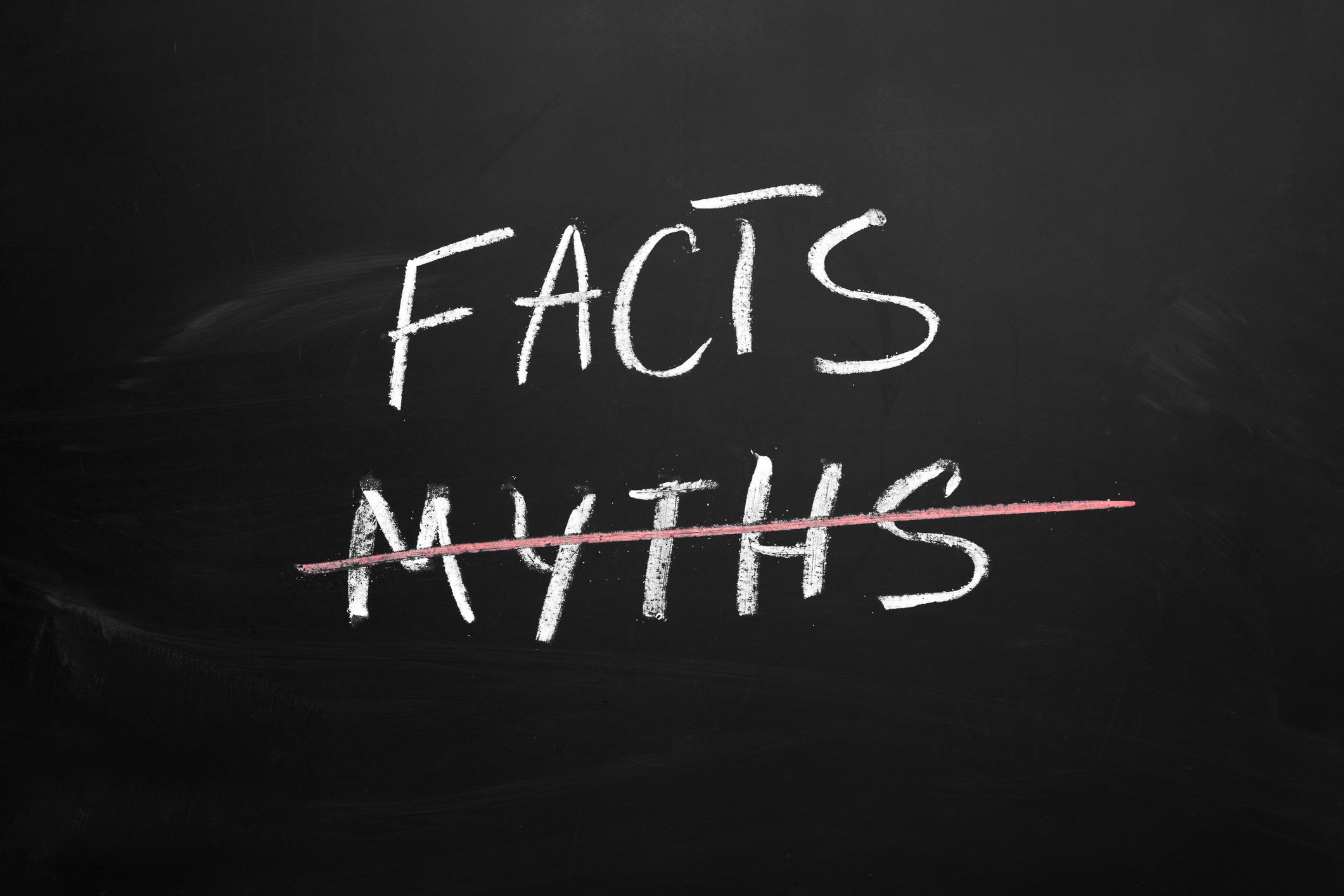
There are many reasons dental myths exist. Sometimes, they are perpetuated by people who want to sell a product or service. Other times, they are simply the result of misinformation. And still other times, they may be based on outdated information or folk beliefs.
Whatever the reason, dental myths can be harmful if they lead people to make decisions about their oral health that are not in their best interests. That’s why it’s important to be aware of some of the most common dental myths and to know the facts behind them.
Myth 1: Hard Toothbrushing Damages the Enamel
One common myth is that brushing your teeth too hard will damage your enamel. The truth is that while aggressive brushing can cause wear and tear on your tooth enamel, it is not likely to damage it. However, brushing too hard can irritate your gums and cause other problems.
Myth 2: You Don’t Need to Floss If You Brush Regularly
Another myth is that flossing is not necessary if you brush regularly. This is simply not true. Brushing alone cannot remove all the plaque and bacteria from between your teeth. Flossing is an important part of oral hygiene because it helps to remove these things and can prevent gum disease.
Myth 3: Mouthwashes Don’t Really Work
A third myth is that mouthwashes are not effective at reducing plaque or preventing gum disease. Again, this is false. Mouthwashes can help to reduce plaque and keep your gums healthy. Just be sure to a mouthwash that contains fluoride, as this will help to protect your teeth from cavities.
Myth 4: You Should Brush Your Teeth After Every Meal
You don’t need to brush your teeth immediately after eating. It’s actually more important to wait 30 minutes to an hour before brushing, so that the acids from your food have time to dissipate.
Myth 5: Whitening Products Will Damage Your Teeth
Professional whitening treatments performed by your dentist are safe and will not damage your teeth. Over-the-counter whitening products may cause some sensitivity, but this is usually temporary.
Myth 6: Dental Visits Are Only Necessary When You Have Problems with Your Teeth
It’s important to visit the dentist regularly for checkups and cleanings, even if you’re not experiencing any problems with your teeth. This way, your dentist can catch any problems early and prevent them from getting worse.
We hope this has helped clear up some of the myths surrounding dental care! Remember, brushing twice a day, flossing daily, and visiting your dentist regularly are the best ways to maintain healthy teeth and gums.
Choose Park 56 Dental in New York for Your Dental Needs!
If you’re looking for a dentist in New York, look no further than Park 56 Dental. Our experienced dentists and staff provide comprehensive dental care for patients of all ages, from routine cleanings and exams to more complex procedures like root canals, tooth extractions, and dental implants. We use the latest technology and techniques to ensure that our patients receive the best possible care.
Call us today at 646-679-3989 to schedule an appointment!
-
Why You Should Choose Invisalign to Help Give You A Healthier Smile
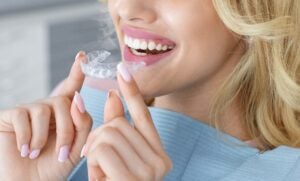
When you think of a beautiful smile, what do you think of? Straight teeth! When you look at your own smile, is there something you wish you could change? Straight teeth are actually easier to attain than you’d think! Let the certified Invisalign experts at Park 56 Dental of NYC help you know how easy Invisalign actually is!
What is Invisalign?
Invisalign is a modern method of straightening teeth without the hassle and diet restrictions of braces. Because the aligner is designed to be removed, it is easier to maintain healthy daily oral hygiene habits that your whole mouth will benefit from! A typical process is completed between 9 and 15 months of wearing the aligners 24 hours a day, other than when brushing, eating, drinking or flossing.
What are the health benefits of having straight teeth?
Straight teeth are more than just a visual bonus. The American Dental Association says that properly spaced teeth can prevent periodontal disease (red, swollen gums) as well as other periodontal related issues. Additionally, the ability to remove the aligner while under treatment with Invisalign allows for better/ easier access to your mouth so that there isn’t as much risk for mouth sores, hidden food getting stuck between wires or brackets, plaque and tartar build up, or other daily challenges that braces can present.
Why is Invisalign for me?
Invisalign is effective at straightening crooked teeth with many, many benefits, such as:
- Convenient
- Removable, so you are able to keep your teeth and your aligner clean!
- Free to eat and drink your preferred food choices without concern for damaging, as with braces
- Virtually invisible (Ha! That’s why they’re called “Invisalign!”)
- So comfortable, you hardly know they’re there!
- Easier to clean
- Versatility
- Game ready! No wires= NO mouth guard needed with an Invisalign!
- Produces amazing results quickly
- Fewer visits to the dentist are needed (as compared to braces)
What will Invisalign cost?
Remember, when caring for your teeth, you are making an investment in YOU and your overall health! The price of Invisalign treatment varies, depending on duration of treatment. Additionally, if your insurance includes orthodontic treatment, you may qualify for Invisalign. Park 56 Dental also has payment options so that you may choose a plan that works best for you.
What do people say about Invisalign?
Testimonials are a great resource for making a decisions. Here are a few testimonials from Park 56 Dental Invisalign patients.
I definitely smile a lot more. Even though I’m still in treatment, it has given me more confidence. It’s given me something to look forward to. I feel good about myself. I feel good that I have taken the steps to get these braces. ~Daniel, age 38
I always wanted to have straight teeth, but never thought my smile would look this great. Plus, no one even knew when I was wearing them. I couldn’t be happier! ~Gina, age 26
More than 1,000,000 patients worldwide have been treated with Invisalign and the number continues to climb! If you’re curious about Invisalign, don’t hesitate to set up a consultation with the certified Invisalign providers at Park 56 Dental of NYC and schedule a consultation today at (646) 679-3989!
-
The Link Between Your Oral Health and Alzheimer’s
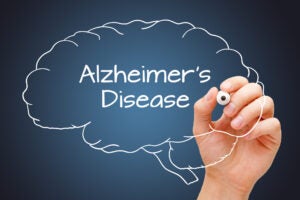
It seems far-fetched to say that your oral health and Alzheimer’s disease could possibly be connected. However, this is exactly the claim that research is beginning to suggest.
As research has been done to compare the brains of people with and without Alzheimer’s disease, scientists have discovered that individuals who suffer from Alzheimer’s disease have an increase in levels of certain bacteria that are also responsible for the cause of gum disease, such as porphyromonas gingivalis and a toxic enzyme that it creates called gingipains. Gingipains is secreted from this bacteria and has been found to destroy the brain’s neurons. This similarity between gum disease and Alzheimer’s is enough to suggest that the prevention of gum disease may also be connected to the possible prevention of Alzheimer’s
In a different study led by the CDC’s National Center for Health Statistics, baselines were taken and individuals were tracked with follow-up data kept for up to 26 years. Up to 19 antibodies were found that are associated with Alzheimer’s with the most fatal being, again, porphyromonas gingivalis and its production of the toxic enzyme gingipains.
So, it makes sense to work hard to prevent gum disease and, therefore, reduce the risk of MANY other problems!!
What do I do if I already have gum disease?
Healthy oral hygiene habits can decrease the risk of gum disease. Continue to improve and maintain healthy habits, including:
- flossing daily
- brushing your teeth 2-3 times a day
- using antibacterial mouthwash
- changing your toothbrush every 3 months
- being intentional about what foods and drinks you comsume
Remember, also, to visit your dentist at least 2 times a year for cleanings. If your teeth are showing signs of plaque build-up, there is a procedure for deeper cleaning of the teeth and gums that may be right for you. Continuing to care for your teeth is of the utmost importance. Your health and wellbeing are so valuable, especially to those whom you love!
How can I protect myself?
Keep learning and researching! Education is the key to making informed and improved decisions. Some of your health journey is genetic, but some is left up to you and the choices that you make for taking care of yourself. You may not be able to change past decisions but you can certainly work toward staying the healthiest you can possibly be. Whether you have always been on top of your oral health and hygiene or you have room for improvement, remember that your teeth and gums impact your whole body’s wellness.
While this research is still undergo, you have the ability to be proactive. Clean teeth make for a healthier you! Stay informed and maintain that amazing smile! Schedule a cleaning today so that you can maintain healthy teeth, heart, and mind!
You are worth the time, energy, and expense of a happy, healthy smile! So, go ahead and take some much needed time to invest in yourself and your future! You’ll be so very glad that you did!!! Call Park 56 Dental today at
-
How to Prevent Plaque
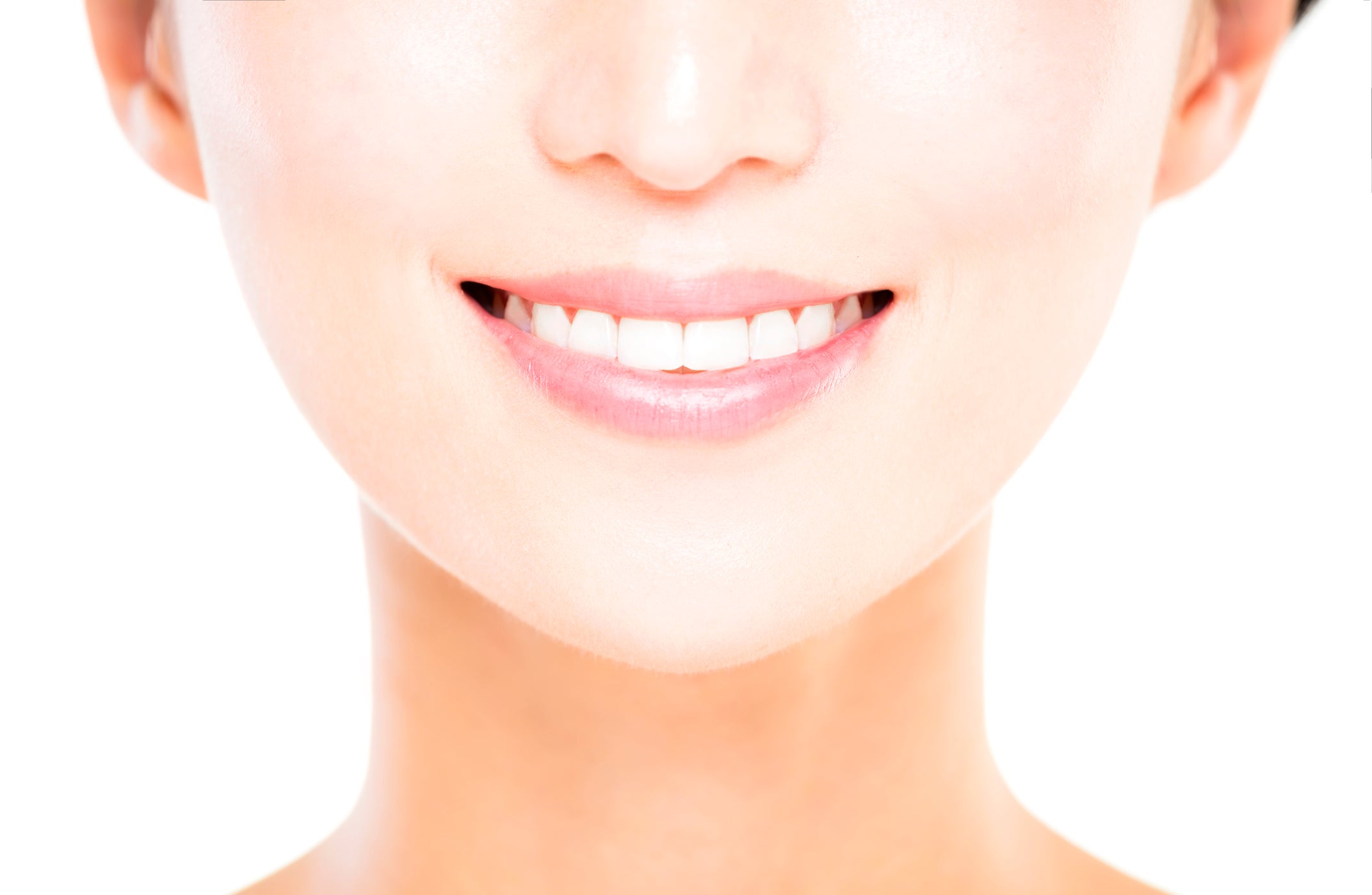
Everyone knows that if we don’t take care of our teeth we can get cavities. One cause of cavities is the buildup of plaque, which can also cause gum disease. Here’s an overview of what plaque is and how we can prevent it.
Everyone has dental plaque to some extent. Plaque causes a slight fuzziness on your teeth that you can feel with your tongue. It’s a sticky film of bacteria that is constantly developing on the surface of your teeth. The bacteria in plaque produce acids after you eat or drink. These acids can destroy your tooth enamel, leading to cavities and also gingivitis aka gum disease.
Plaque can also form under your gums and on your tooth roots. They can break down the jaw bones that support your teeth. If left untreated, plaque can harden into tartar, which is harder to remove. Proper dental hygiene habits, most importantly daily brushing and flossing, gets rid of a lot of this plaque. If you don’t like using normal dental floss there are options for you, including dental picks, pre-threaded flossers, brushes that fit between your teeth, water flossers or wooden plaque removers. Mouthwash is useful for loosening plaque so you can brush it off better, or spit or rinse it out of your mouth. But be careful to not get a kind that will dry your mouth out, because that actually makes your mouth more vulnerable to plaque formation.
Although we all get plaque, you may be more susceptible to plaque formation if you:
- Smoke
- Have dry mouth due to medical conditions or medications
- Have a history of head or neck radiation
Your diet is also an important factor for plaque formation. Plaque can form quickly when the bacteria in your mouth mixes with sugary or starchy foods such as soft drinks, milk, juice, fruit, pasta or bread. These bacteria release acids that break down carbohydrates in food and drinks, so they do serve a useful function in that regard. Plaque is clearly a downside. Many dentists will tell you that you can eat or drink pretty much whatever you like, as long as it’s in moderation. Whenever possible, drink water or brush your teeth right after consuming these problematic foods or drinks, to get that dangerous stuff off your teeth before they can help form plaque.
Regular dental cleanings are important too, because there are spaces that are hard for you to clean on your own. Dentists and dental hygienists have special tools to find and remove plaque.
If you’re looking for the perfect place to get your teeth cleaned or fixed, choose the practice that was voted best dentist in NYC! At Park 56 Dental Group, we offer pediatric, prosthodontics, endodontics, oral surgery, Invisalign®, emergency, and sedation dentistry, all at the highest level of treatment. We serve the Midtown, Central Park, Upper East Side, Park Avenue, and all surrounding Manhattan and New York areas, with a patient-centered practice that has hours to fit your schedule. Schedule your complimentary consultation today by contacting us online or calling us at (646) 679-3989.
-
How Root Canals Can Improve Your Smile and Dental Health

Have you ever heard a character in a movie or TV show say “I’d rather have a root canal?” That’s a reference to a dental procedure that used to be quite painful and complicated but, due to medical advancements, no longer has to be. The weird thing is, most people don’t even understand what the procedure is, or how much it can improve your smile and your dental health. If you’ve ever wondered about this topic, we’re here with the details.
Before the root canal procedure was invented, a tooth with a diseased nerve had to be taken out. Today it can often be saved with a fairly simple procedure involving one to three office visits, and with minimal downtime. And in contrast to old methods, it can be done virtually painlessly.
After a tooth has emerged through the gums, the only real function of the root is to detect heat or cold. When a tooth develops a crack or a deep cavity, germs can enter the pulp tissue and cause an infection inside the tooth. If this is left untreated, an abscess may form, and if the infected tissue is not removed, pain and swelling can result. This can also injure your jawbones and cause other health issues.
Teeth with infected roots aren’t always painful, but signs you may need a root canal include severe toothaches, pain when chewing or applying pressure, prolonged sensitivity or pain in response to hot or cold temperatures, a dark discoloration of the tooth, and swelling or tenderness of the adjacent gums. If you experience any of these symptoms, contact your dentist.
During a root canal procedure, your dentist or endodontist (a dentist who specializes in dental nerves) removes the affected tissue. Then the interior of the tooth is cleaned and sealed. Finally, the tooth is filled in with a dental composite. If your tooth has extensive decay, your dentist may want to place an artificial crown on your tooth to protect it from breakage. If you take good care of your teeth with regular brushing, flossing, and dental checkups, your restored tooth can last a lifetime.
If you think your teeth may have damage that requires a root canal procedure, choose the practice that was voted best dentist in NYC! At Park 56 Dental Group, we offer pediatric, prosthodontics, endodontics, oral surgery, Invisalign®, emergency, and sedation dentistry, all at the highest level of treatment. We serve the Midtown, Central Park, Upper East Side, Park Avenue, and all surrounding Manhattan and New York areas, with a patient-centered practice that has hours to fit your schedule. Schedule your complimentary consultation today by contacting us online or calling us at (646) 679-3989.
-
What Are Our Teeth Made Of?
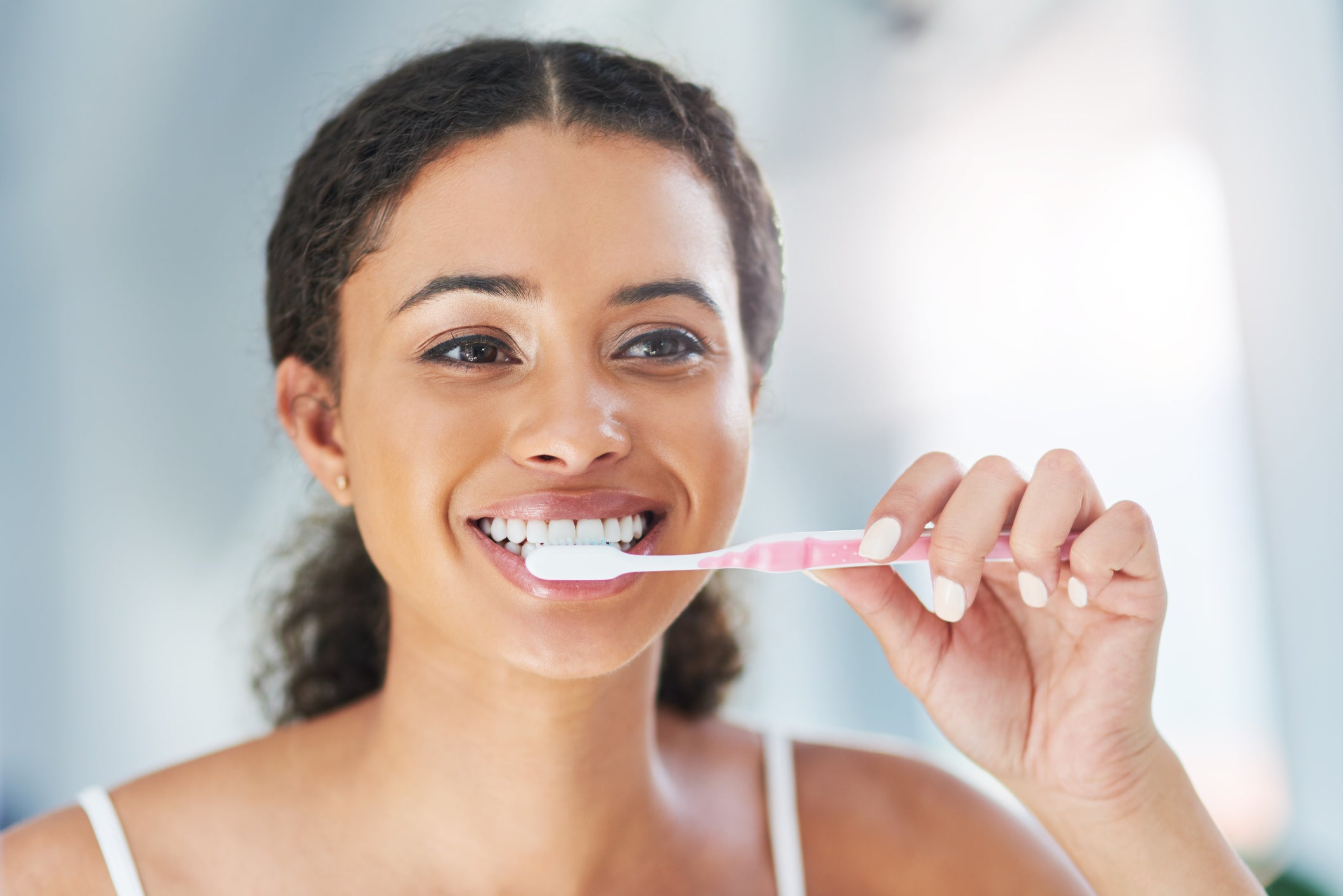
Most people know the basics of dental care, but how many of us really know the anatomy of our teeth? Here’s a short overview of what our teeth are made of.
Crown
Quite simply, the crown is the part of the tooth that you can see.
Enamel
The hardest tissue in your whole body is the enamel of your teeth, which forms the outermost layer of the crown. This substance is why your teeth can withstand the pressure from chewing hard foods. It also protects your teeth from harmful bacteria and acids, as well as hot and cold foods. Enamel mostly consists of calcium phosphate, a rock-hard mineral.
Dentin
Right below the enamel is a yellowish material called dentin. It is a hard tissue made of microscopic tubes. When the enamel is damaged or worn away, heat or cold can enter the tooth through these tubes and cause pain. Every tooth is mostly dentin, which is why teeth have a slight yellowish tint. Like enamel, dentin mostly consists of apatite crystals of calcium and phosphate. This makes it hard as bone, but it’s not quite as hard as enamel.
Pulp
Below dentin is pulp, the softest, most alive and innermost portion of the tooth. Pulp consists of connective tissue , nerves, and blood vessels, which nourish your teeth. Pulp has two parts — the pulp chamber, which is in the crown, and the root canal, which lies in the root of the tooth. Nerves and blood vessels enter the root through a small hole in its tip and extend through the root canal into the pulp chamber.
Cementum
Cementum is a layer of connective tissue that secures the roots of your teeth firmly to your gums and jawbone.
A layer of cementum coats the exterior of the root, under the gum line, and binds the tooth into place within the jawbone. Cementum is as hard as bone, but it’s slightly softer than dentin. It consists of about 45–50% inorganic minerals and 50–55% organic matter (mostly collagen and glycoproteins) plus water.
Periodontal Ligament
The periodontal ligament, also called the desmodontium, is a fibrous joint that holds the root of each tooth in its bone socket. The periodontal ligament fibers are anchored in the cementum layer of the tooth and in the alveolar jaw bone. They hold the teeth in a state of sprung suspension, which means that each tooth can move slightly within its alveolar bone socket.
If you’re looking for the perfect place to get your teeth cleaned or fixed, choose the practice that was voted best dentist in NYC! At Park 56 Dental Group, we offer pediatric, prosthodontics, endodontics, oral surgery, Invisalign®, emergency, and sedation dentistry, all at the highest level of treatment. We serve the Midtown, Central Park, Upper East Side, Park Avenue, and all surrounding Manhattan and New York areas, with a patient-centered practice that has hours to fit your schedule. Schedule your complimentary consultation today by contacting us online or calling us at (646) 679-3989.
-
Should You Get Veneers?

Are you considering veneers? If you’ve ever felt the need to hide the imperfections in your smile, veneers might be the perfect solution for you. A natural-looking option, veneers are an excellent way to adjust your smile and help you feel more confident.
A veneer is a thin shell made of tooth-colored porcelain and customized to match your existing teeth. It fits on the outside-facing portion of your tooth and blends seamlessly into your natural smile. Veneers are a discreet option for improving your smile and can conceal imperfections without causing unnecessary damage.
To start the process, your dentist creates a model of your teeth, which the dental technician will use to create your veneers. Each tooth will be prepared by cleaning, polishing, and etching it slightly to remove a little bit of enamel so the veneer will adhere correctly to the tooth’s surface. Once it’s in place, it will be evaluated to make sure it’s functional and aesthetically pleasing. If necessary, the dentist will make adjustments to create a natural fit, feel, and look.
Using veneers, dentists can address issues that include:
- Crooked teeth: Veneers aren’t a replacement for orthodontia but can be used in some cases to improve the look of crooked teeth.
- Gaps: If your teeth don’t fit together as they should but have gaps between them, it can detract from the look of your smile. However, a more pressing concern is that gapped teeth can be more vulnerable to cavities and gingivitis. If your teeth are poorly aligned, you probably need braces or a retainer. However, if your teeth are gapped because they’re small, veneers might solve your problem.
- Discoloration: If you’ve tried tooth whitening and are not getting the look you want, veneers can give you a sparkling white smile.
- Imperfect teeth: Maybe some of your teeth are smaller than others, or perhaps your teeth are worn down or oddly shaped. If your imperfect teeth are making you self-conscious, veneers can fix the problem.
- Chipped teeth: Most people chip a tooth at some point in their lives. A veneer applied to a chipped tooth can make the chips invisible.
If you need more persuading, consider the benefits of veneers. First, they look and feel just like your natural teeth, so no one will even know they’re there. They’re also stain resistant, so your teeth are likely to stay white once they’re in place. Veneers are also strong and durable enough to protect your smile for up to 15 years.
If you’re looking for the perfect place to get veneers, choose the practice that was voted best dentist in NYC! At Park 56 Dental Group, we offer pediatric, prosthodontics, endodontics, oral surgery, Invisalign®, emergency, and sedation dentistry, all at the highest level of treatment. We serve the Midtown, Central Park, Upper East Side, Park Avenue, and all surrounding Manhattan and New York areas, with a patient-centered practice that has hours to fit your schedule. Schedule your complimentary consultation today by contacting us online or calling us at (212) 826-2322.
-
Why it’s Important to Clean Your Tongue

You brush at least twice a day and floss at least once, but what about cleaning your tongue? If you’re like most people, you probably neglect this important part of dental hygiene. While people are taught from childhood about the importance of brushing and flossing, tongue care is an often neglected subject. It’s vital to oral health, though, and here are some reasons why.
- Your tongue is a breeding ground for bacteria. In fact, most of the bacteria your mouth can be found on the rough surface of your tongue. When you brush your teeth, you remove bacteria from your teeth. However, saliva carries bacteria from your tongue back to your teeth in just a few hours.
- Neglecting to brush your tongue leads to bad breath. All the bacteria hanging out on your tongue can cause odor. Cleaning your tongue can prevent halitosis.
- Cleaning your tongue reduces your risk of periodontal disease. Gum disease is a real problem that can lead to illnesses throughout the body. When you remove the bacteria from your tongue, there’s less of a chance that it can lead to gum infection.
- Your taste buds will thank you for cleaning your tongue. Bacteria on your tongue can coat your taste buds and mute the flavors of your food. Want to enjoy more rich flavors? Clean your tongue.
- Regularly cleaning your tongue makes you less likely to develop oral thrush. An infection caused by overgrowth of yeast in the mouth, oral thrush can be the result of excessive bacteria in your mouth. You may develop white patches on your tongue that require treatment with an antifungal medication. You can keep this infection at bay, however, by regularly cleaning your tongue.
- Your immune system benefits from a clean tongue. The health of your mouth has a major impact on the health of your body and your tongue works to boost your immune system. Toxins build up on your tongue, and when you clean them off, you’ll prevent them from being absorbed into your body. You’ll have better overall health and stronger immune function.
So, what’s the best way to clean your tongue? Rinsing won’t do the trick; you’ll have to use your toothbrush. Beginning at the back of your tongue, work your way towards the front of your mouth, brushing back and forth, side to side, over the entire top surface of your tongue. Brush firmly but gently enough to avoid breaking the skin. To keep a healthy mouth, brush your teeth and tongue at least twice a day, floss daily, and keep regular appointments with an experienced, well-qualified dentist.
If you’re looking for the perfect dentist, choose the practice that was voted best dentist in NYC! At Park 56 Dental Group, we offer pediatric, prosthodontics, endodontics, oral surgery, Invisalign®, emergency, and sedation dentistry, all at the highest level of treatment. We serve the Midtown, Central Park, Upper East Side, Park Avenue, and all surrounding Manhattan and New York areas, with a patient-centered practice that has hours to fit your schedule. Schedule your complimentary consultation today by contacting us online or calling us at (212) 826-2322.
RECENT POSTS
categories
- Uncategorized
- Cosmetic Dentistry
- Veneers
- Healthier Teeth
- Teeth Whitening
- Dental Health
- Video
- Dental Emergencies
- Invisalign
- Dental Implants
- Root Canal
- Sedation Dentistry
- Infographic
- Dental Crowns and Bridges
- Dental Anxiety
- Gum Disease
- COVID-19
- Bad Breath
- New York Dentist
- Cut out sugar
- General Dentistry
- Oral Health
- Oral Cancer
- Dry Mouth
- Gum Health
- Toothache
- Dental Sealants
- Cavities



